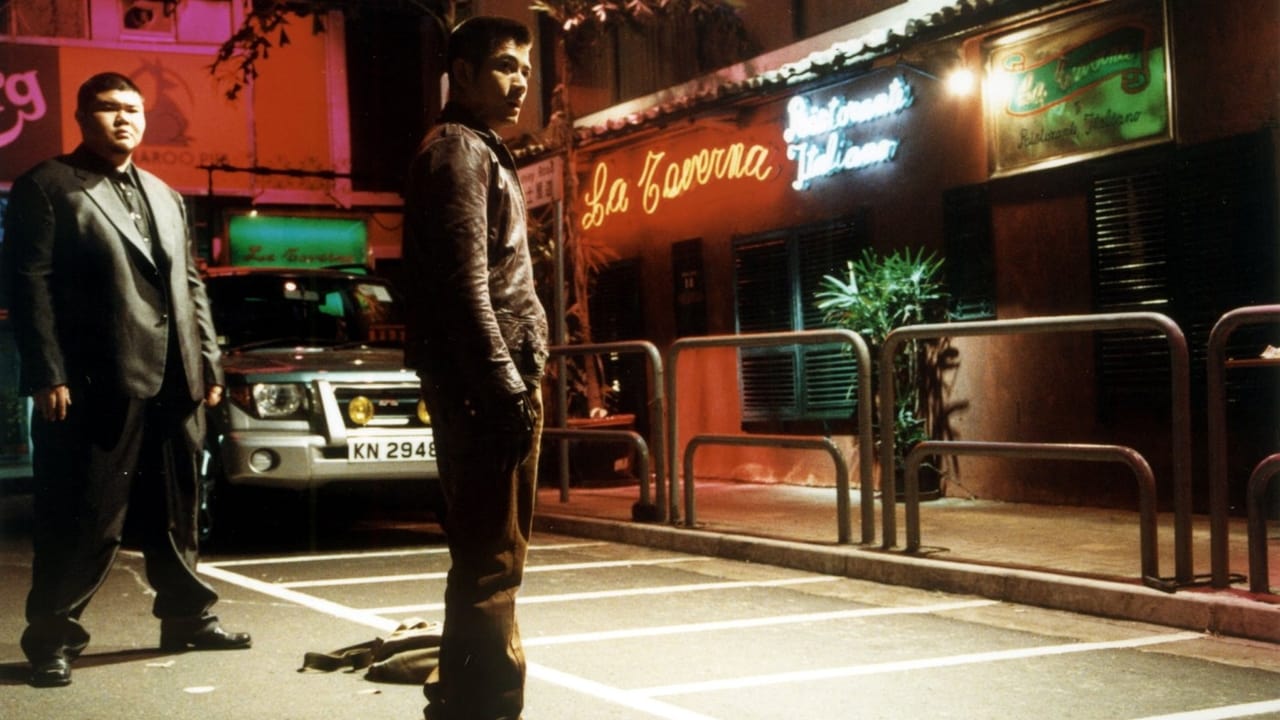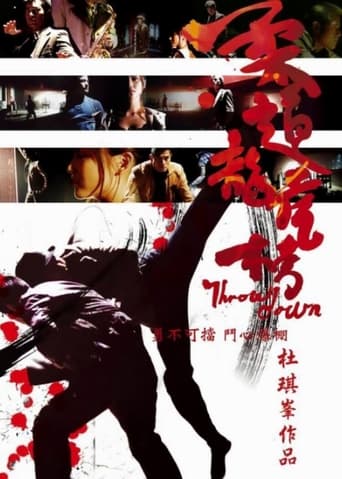DICK STEEL
Throw Down from 2004 is slightly different, retaining the technical qualities his films are known to exhibit, but having a storyline with themes that are more personal, and in essence a shout out to anyone found struggling with whichever aspects of life at a point in time. There are no guns nor weapons galore, nor are there cops and clear cut villains who are baying for blood. While it's about Judo, don't come to expect a fight-a-minute film because this is not that movie, with action sequences kept to a bare minimum, though it does boast a scene which I thought was pandemonium done poetically with wonderful choreography that looked like a Judo free for all tournament is in progress, set within the confines of a crammed pub premises that spilt over to the sidewalk and roads outside.Amongst the various Asian martial arts, I never really come to understand the spirit of Judo, and thus was my least favourite of them all, until this film. Almost every martial art would have found a representative film to promote the art or the sport version, and I haven't seen one that focused on Judo until Throw Down came along, and the metaphor couldn't be more pronounced. In essence it may seem like a series of throws to get your opponent off balance and gaining an upper hand, but it's truer of its spirit and intent. the message of dusting oneself off the ground when one gets defeated, to get up on one's feet and try again. It is this spirit of perseverance and encouragement that is very much alive through the protagonists in the film, a spirit that To explores in this movie.Written by Yau Nai-Hoi, Au Kin-Yee and Yip Tin-Shing, Throw Down follows the story of Sze- To (Louis Koo), a one time Judo champion who decided to abruptly call it quits, and now manages a karaoke pub and lounge, spending his time wasted in drink and gambling, void of the zest of life. Nobody knows the real reason behind this sudden change, and it is we the audience who will journey with him down the trodden path of redemption. I think this film also marks Aaron Kwok's rare acting tutelage under Johnnie To as he plays the youngster Tony, a Judo enthusiast who seeks out Sze-To for a genuine challenge, and decided to stick around when he doesn't get the quality of challenge he's looking for. And Cherrie Ying rounds up the protagonist trio as Mona, a cannot-make-it singer wannabe from Taiwan who tries hard to make it to the entertainment scene, ending up at Sze-To's pub looking for a job.Each character is vastly different and encapsulates the different approaches toward this journey we call life. In Sze-To we see someone zapped of zeal and spirit, giving up on what he does best and going through the motions, nary wanting to lift a finger to help his one time master Cheng (Lo Hoi Pang) to continue his legacy and fight in an upcoming tournament, much less helping anyone else. In Tony comes optimism, forward looking and almost always seizing the moment, be it the bouncer at the door, or a formidable opponent he knows of, just to spar for the sake of sparring to improve himself, broken arm notwithstanding - where he even designs his own one-arm wrestle. And in Mona's case, one who simply never gives up even with the realization of a void of talent, determined to want to breakthrough no matter what, and seeking out her own opportunities to do so wherever it make take her, home or abroad.Perhaps this film had remained Johnnie To's underrated best in terms of very focused characters each who will emerge quite differently by the time the final act rolls by, given the active metaphor of Judo sparring throughout the narrative, of being thrown down hard onto the ground, yet finding strength from within to pick oneself up again. And To doesn't feel the need to be verbose about everything, preferring to let the long takes, with minimal dialogue, allowing the music, and the basic mood and feel of each scene to tell the story, where even a key plot element has to be figured out that provides the answer why Sze-To acts the way he does, and his reason for quitting while at his prime, providing a sort of a mystery for the audience to unravel themselves.And the technical strengths of this film is very Milkyway, gorgeously photographed by Cheung Siu Keung in both the interior shots and the outdoor ones that romanticizes the streets of Kowloon, with plenty of light and shadow play being very pronounced in the film, highlighting the state of mind each character find themselves in at any particular point in time. The Judo spars and fights are vividly designed to be real, sans wirework and mats, coupled with an engagingly punchy soundtrack that consistently accentuates the mood of the entire film. A superb support cast like one third of The Grasshoppers Calvin So as an outright homage by Johnnie To to Akira Kurosawa, Eddie Cheung as a ruffian who talks to himself under his breath spewing insults, and Tony Leung Kar-Fai as a mean dojo owner with a menacing single Judo technique, make this journey a classic one to undertake, and definitely one of Johnnie To's best works in his filmography that deserves to be widely seen. Highly recommended!
tsulrednaw
This movie was just barely watchable. I kept wishing it would end already and if it weren't for the fact that my friend was actually really into it (he liked the judo scenes, but admitted to having no idea what the movie what about) I would have walked out.Perhaps it has to do with a Hong Kong movie style, but the plot was all over the place and I had only the vaguest idea as to what was going on. I didn;t even really know or care about the characters. Why did Sun Tzo need money? WHy did he leave judo? Why did the other guy want to fight so badly? What is the girl's relationships to the men? Why are they suddenly lightheartedly grasping for a balloon? Why is the guy at the end wearing a blindfold? I appreciate subtlety but, perhaps because of the translation or cultural differences, I found this movie was unbearable.
dragonpenchant
After hearing a lot of praise for To's movies and being really excited to finally see one (on the big screen no less), this film ended up being a grand disappointment. I can appreciate hokey melodrama as much as the next guy, but this shite was unbearably trite. My foremost criticism is of the over the top and out of place musical sequences and i don't quite care if To's satirizing other HK movies because it just wasn't funny enough. The movie wasn't totally w waste of time considering a few memorable moments and some brief humorous moments. Maybe if he had just finished the movie after the balloon scene i would respect his audacity but instead he drags this trifling, self indulgent piece on another 20 minutes. Kurosawa you're not, Johnny.
Zabadoh
Director/writer Johnnie To throws down lots of HK movie clichés: The Heist, The Young Challenger, The Fighting, The Master, The Rival, The Gangsters, The Gambling. But all of it's entertaining nonsense used to set up his usual innovative scenes and a little drama. Give Director To credit for parodying these clichés to a fault.This movie is challenging. This is not easy to digest chop sockey flash bang action. So what is this movie about? A lot: Rediscovering relations from happier times, rediscovering oneself, and a director having fun and dropping references to Kurosawa's "Sugata Sanshiro" (1943).

